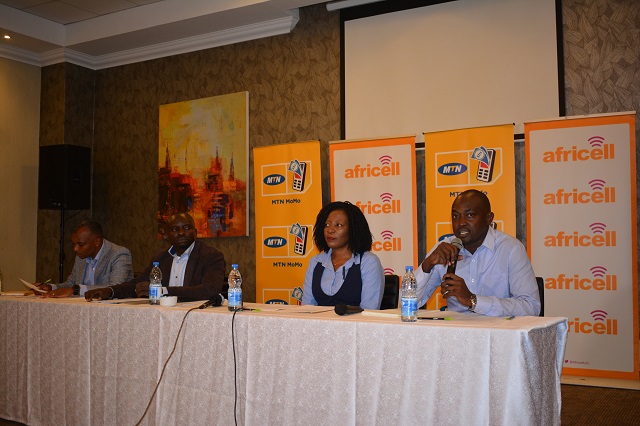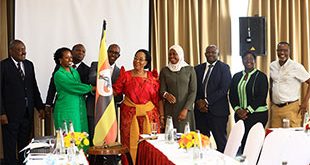
Kampala, Uganda | THE INDEPENDENT | Uganda Communications Commission (UCC), the regulator of the communications industry has welcomed as a step in the right direction, a partnership that will see MTN-Uganda merge services with Africell.
Africell and MTN announced a partnership last week that would see Africell customers use MTN agent network to top up airtime and data bundles. The deal, however, does not include Africell’s mobile money platform, Africell money. MTN has the biggest number of agents compared to any other telecom company.
Previously, the telecom giant had refused competitors from using the same agents under exclusivity agreements, a position that was quashed in a court case lodged by agents.
UCC spokesperson Ibrahim Bbosa told Uganda Radio Network that the regulator is looking at it from the infrastructure sharing bit that could help another player reach the customers and sustain their operations.
Edgar Karamagi, the spokesperson of Africell, told URN that they were to use MTN platform as a channel that they pay to reach where they hadn’t been able to reach on their own. In this deal, agents are expected to earn extra commission from serving two entities.
Last November, UCC called on telecoms to share infrastructure and work on improving the quality of services instead of setting up parallel infrastructure but remain inefficient. Airtel and K2 provided the first case of a partnership where the latter is using the former’s network for its services.
Michael Niyitegeka, an IT expert and director of International Computer Driving License (ICDL) said most of the bigger telecom firms had redundant capacity and it was acceptable that the smaller players use them to get provide reach and provide services to their own customers cheaply.
The sharing of infrastructure has been recommended by the World Bank as one of the sure ways to reduce market failures in telecommunication services markets.
The World Bank has indicated that as a way to achieve digital dividends, by reducing capital expenditures (CAPEX), operative expenses (OPEX), barriers to entry, and prices as well as increased competition and Internet use.
Smaller players usually benefit but also it ensures that big players don’t use their status to block any entry or growth of small ones. On the flip side, sharing can be a source of disequilibrium and market distortion as it may reduce incentives to build new infrastructure, adopt new technologies and stifle market innovation.
“Infrastructure sharing, therefore, is a trade-off between expected faster and cheaper network expansions and the potential disincentives to innovation and investment in new technologies,” the World Bank said in a 2015 report.
UCC’s Bbosa says the regulator is aware of this and there are administrative interventions they enforce to ensure the market is not distorted.
*****
URN
 The Independent Uganda: You get the Truth we Pay the Price
The Independent Uganda: You get the Truth we Pay the Price



